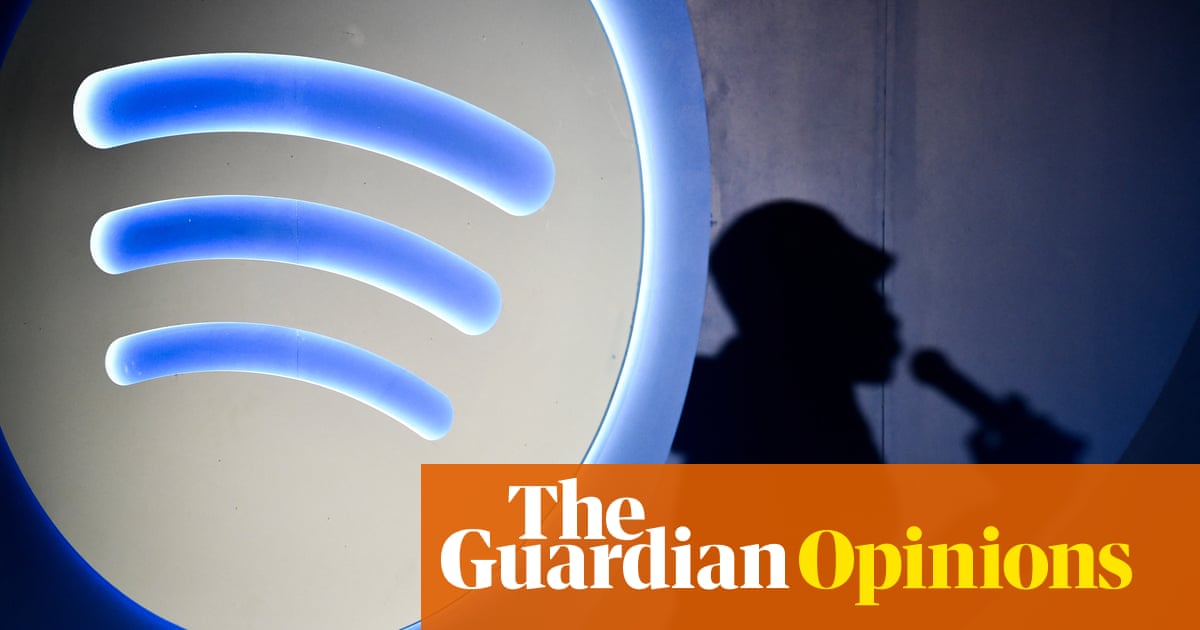
The music industry is engineering artist popularity – listeners are right to be angry

Numerous tactics, including payola-like deals on Spotify, are promoting artists people haven’t chosen to hear – but the industry refuses to discuss it
For months, one question has been plaguing pop fans: why is Spotify playing me the same songs over and over again?
Every other week, a post goes viral on X asking why Chappell Roan’s Good Luck, Babe!, or Sabrina Carpenter’s Espresso, or Billie Eilish’s Birds of a Feather, are constantly being put into a user’s autoplay queue by the streaming service’s algorithm, regardless of what they were listening to previously. One user got Carpenter’s recent hit Please Please Please after the extremely different vibe of Get It Sexy by St Louis rapper Sexyy Red; another complained to NME that Espresso was constantly playing after the “sad music and songwriter types” she often listens to.
This saga has caused online pop music fans, already a relatively paranoid bunch, to go full conspiracy theorist. Taylor Swift’s fans allege that Eilish has turned on the “mass autoplay feature”. (Such a feature doesn’t exist.) Last month, a post went viral alleging that Roan is an “industry plant”, a meaningless term used to discredit artists who achieve a rapid rise to fame. (If the industry could just “plant” stars, there would be a lot more of them.) Others describe the prevalence of artists in autoplay as “payola”, reviving the term for when a record label pays a radio station to play its music – and this mindset is easier to understand.
Pop has always presented listeners with the illusion of choice – no matter whether you listen to Roan, Eilish or Carpenter, your $0.003 lines the coffers of Universal Music Group – but it’s certainly got worse in recent years, as artists and their teams have worked out new ways of gaming charts and algorithms. Taylor Swift has maintained a chokehold on the charts not just because of widespread listenership of her album The Tortured Poets Department, but because she has savvily released geolocked alternate versions of the record when a competitor, such as Charli xcx, comes within spitting distance of the No 1 spot.
There is also a fundamental disconnect between what feels popular and what is statistically popular, which has contributed to this weird tension among pop fans. Beyoncé’s Cowboy Carter attracted outsized media attention on its release earlier this year, but it only ranks at No 16 on the UK’s Official Charts Company’s list of highest-selling albums of 2024 thus far, bested by Ariana Grande’s Eternal Sunshine, Eilish’s Hit Me Hard and Soft, and five Swift albums.

And then, of course, there’s “discovery mode”, a controversial new Spotify feature that allows artists to forgo a portion of their royalties in order to receive a boost in algorithm-led zones of the app such as the autoplay queue, radio, and mixes. It’s not strictly payola, but certainly feels to users like its 21st-century equivalent.
Discovery mode was launched in 2020, but it’s not yet known how widely it’s used, or what kind of success artists are seeing from it. Spotify says “on average, artists see +50% in saves, +44% in user playlist adds, and +37% in follows during the first month,” but these metrics are specifically tied to the Spotify ecosystem – making it hard to say whether musicians are actually making much money from these new “discoveries” of their music.
So there is good reason for fans to be concerned about whether their mechanisms for listening to music are being tampered with. The industry, too, hasn’t educated listeners about the possibility they may be subject to new-school payola. Speaking to label reps, publicists and artists – all of whom were wary of going on the record – I know that many in the industry feel discovery mode sets a dangerous precedent when it comes to tech’s incursions on music. I’ve also heard people questioning whether the tool is really worth it, given that there is a natural limit on how many songs can be boosted into a listener’s feed.
But many artists and most labels are fearful of reprisal from Spotify in the form of reduced editorial or algorithmic support, making public critique risky. There’s an element of slightly paranoid thinking here, too; nobody really knows how active Spotify is in coercing its own algorithm, meaning the spectre of being “blacklisted” looms large even though there’s no evidence that angering Spotify can actually end in such a result.
Spotify also wouldn’t speak to me on the record; this lack of information from all sides makes it hard for anyone to consume music on the service in any kind of informed way. A representative for a major label told me they don’t think their label actually uses discovery, despite speculation that they do, a fittingly oblique response for such a mystifying topic. The promise of the internet was that it would allow us to cut out middlemen and buy music direct from the artist, but the reality is that quite the opposite has happened – we’re faced with an even more infernally complex system. Spotify users remain in limbo, left to guess how much of their feed is what essentially amounts to undisclosed advertising – and how much, at the other extreme, is totally randomised.

